| Making Democracy Work® The League believes the state has the responsibility to provide ample and equal opportunity for education and for those social services needed to ensure that every child is ready to learn and safe in the educational environment, that all programs mandated by the legislature should be fully funded by the state, and that citizen participation should be encouraged at all levels. Issue Team Chair: Catherine Ahl, cahl@lwvwa.org, (360) 697-7924 |
Wrapping up the 2024 Legislative Session Most of our priority bill were passed and funded plus other good policy bills for which we didn't have positions. Dual and tribal language education grants were funded and bills to update inclusive materials in schools (SB 5462) to ensure students have access to materials and learning that includes LGBTQIA+ individuals, and to protect students’ freedom to learn by creating processes and procedures required before books can be removed (HB 2331) and protect materials from arbitrary censorship were passed and funded. Also, The capital budget includes $306 million for school construction, and legislators made a significant investment in the school construction assistance program by raising the per square foot funding from $271.61 to $375.
|
2024 Education Legislation
Bills in green are supported. Bills in red are opposed by the League. Bills in black the League is watching.
HB 1956 Addressing Fentanyl and Other Substance Use Prevention Education. Fentanyl and other opioid prevention education delivered through health classes or other discretionary programs must be provided to as many seventh and ninth grade students as possible during the remainder of the2024-25 school year, and annually to seventh and ninth grade students thereafter. This bill passed the House and Senate, in the budget and on the Governor's desk.
HB 2180 Increasing the Special Education Enrollment Funding Cap. This would increase funding from 15% to 17.25%. The cap was lowered to 16%, passed the Senate and House, is in the budget and on the Governor's desk.
SB 5953 Concerning Financial Aid Grants for Incarcerated Students. This provides education resources for incarcerated students. Passed the House and Senate, is in the budget and on the Governor's desk.
SB 5882 Increasing prototypical school staffing to better meet student needs. This would phase in additional staff allocations for paraeducators, office support staff, and non-instructional aides in the prototypical school funding model. Passed the Senate and House, is in the budget and on the Governor's desk.
SHB 2494 Increasing state funding for operating costs in schools. The MSOC (materials, supplies and operating per pupil amounts defined in the prototypical formulas would be updated and include a $21 per pupil increase. Passed the House and Senate, is in the budget and on the Governor's desk.
SB 5873 Providing Adequate and predictable Student Transportation. This bill would authorize another year studying/gathering data on this issue, but would not provide adequate funding currently. Passed only the Senate and there is a small increase in the budget.
ESSB 6031 Modifying the student transportation allocation to accommodate multiple vehicle types for transporting students. Passed the Senate and House but the Senate refused to concur with the House amendment. There is funding for a study in the budget.
HB 1897/SB 5809 Concerning Enrichment Funding for Charter Public Schools. Voters, who are represented by elected school boards, vote to approve enrichment levies. There is no process or ability for charter school parents to do this. bill passed out of committee Neither passed out of committee, but funding is listed in the budget. Funding comes out of the WA Opportunity Project, not the general fund.
- If you are interested in a particular bill, use the links above to go to the webpage for that bill. These pages include staff summaries and reports including who testified PRO versus CON on the bill. There is also information about how to access videos of hearings that have been held.
- Read and take action through the LWVWA Legislative Action Newsletter, distributed each Sunday during the legislative session.
- You may also express your opinion on legislation with the LWVWA issue chairs. We will take your perspectives under consideration as we determine our support for legislation and prepare testimony. Please direct questions or comments to Catherine Ahl (360-697-7924), Education Issue Chair.

